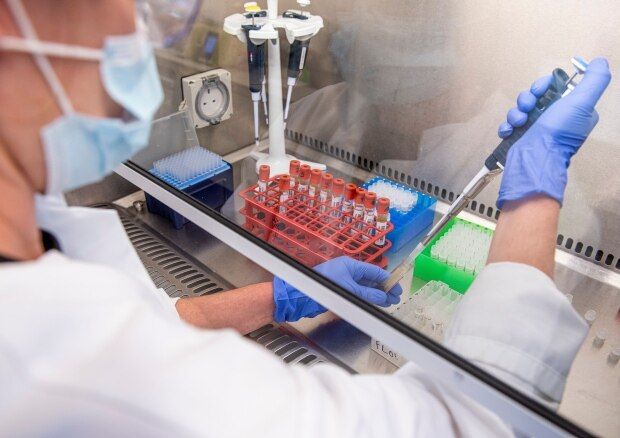Vaccine development normally takes years, if not decades. But scientific teams around the world are aiming to develop a COVID-19 vaccine in 12 to 18 months.
Prof. Gary Kobinger is part of a team at Laval University that is trying to do that, and he thinks it can be done without skipping any steps in the process or compromising safety.
“I believe it’s possible,” said Kobinger, a professor of microbiology and infectious diseases who helped develop a vaccine for Ebola. “You just need to put the effort into it.”
That, and, he acknowledged, “a lot of money.”
But how? Here are some of the things that are being done differently during the development of a COVID-19 vaccine to speed up the process.
Flexible clinical trials
Normally, once it’s been shown effective in preclinical animal trials, a vaccine needs to go through three stages of human clinical trials that are run one after another. They can take years to complete.
With COVID-19, vaccine developers are allowed to run trials in parallel. That is, Phase 2 can begin once early results from Phase 1 look promising, and so on, speeding up the process.
However, researchers note that each phase still must be run to its full length — typically six months for Phase 1, for example.
In addition, vaccine developers are allowed to do what’s called adaptive design. They can create a plan to modify their trials depending on the results, said Lakshmi Krishnan, acting vice-president for life sciences at the National Research Council Canada.
For example if volunteers aren’t responding to a low dose, you can give them a slightly different dose or a second dose — if that was in your plan.
“You cannot do this on the fly,” Krishnan said.
The adaptive design of Canadian trials needs to be approved by Health Canada, she said, and the department may request to see data more often in order to be able to approve — or not approve — further stages of the trial.
Advance manufacturing
Typically, doses of a vaccine aren’t manufactured on a large scale until the vaccine has been approved.
“Manufacturing is a laborious process and it can take many years to produce sufficient doses of vaccine,” Krishnan said, noting that it’s also the most expensive part of the process.
With COVID-19, in some cases, manufacturers such as AstraZeneca have announced the start of production in advance of approval during early phase clinical trials, with no guarantee that the vaccine would ever make it through the other phases and get approval.
“If the vaccine is a good candidate, we don’t have to go back and do the manufacturing,” Krishnan said. “We already have the doses available.”
































